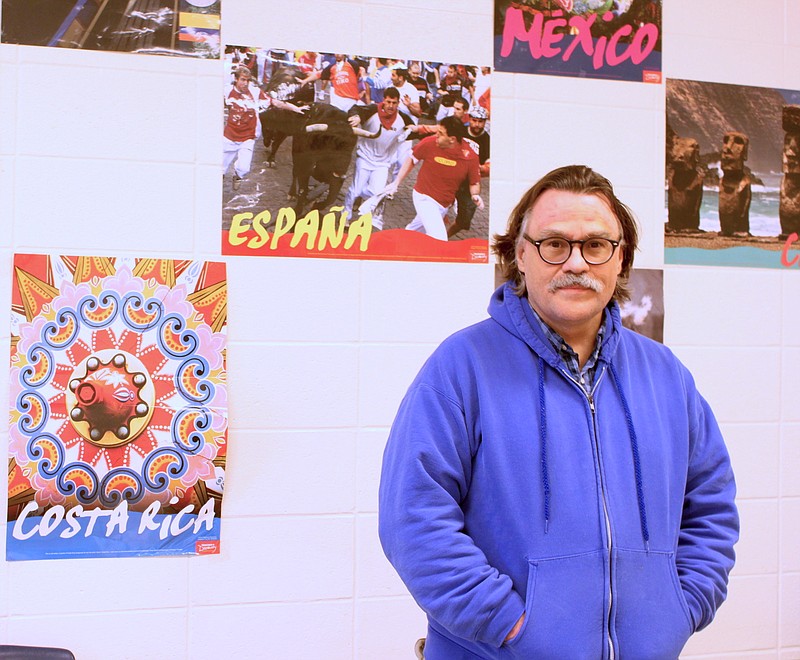The main goal for any educational system is to make sure students have every opportunity to learn, progress and better yet, succeed in their respective communities. However, some students may need just a bit of extra help.
This is precisely where Eric Larimore steps in.
Larimore serves as California High School's English as a Second Language (ESL) teacher. His job is to help students, whose families originate from countries outside the U.S., with their coursework.
"There are students who understand English, but just can't speak it," Larimore said. "Other students come from families where only Spanish is spoken at home, but all of the parents are really supportive of them learning English and keeping up to speed with their education."
California has seen a fairly steady increase in the Hispanic population since the early 90's, Larimore added. With the influx of new neighbors come a variety of cultures and even dialects. Keeping this in mind, the California school system does what it can to accommodate its bilingual students.
"The students are all in regular classes and we provide as much support for them as we can," Larimore said. "I work with the students, if their English needs a little attention, and I speak with their other teachers about what problems the students may be having while in different classes."
In order to be part of the program, a student must take the ESL placement test to determine their English comprehension.
"It's part of a multi-state organization," Larimore said of the test. "If a student has to move to a different state, then that is ok. It can translate to a different state. The test shows whether or not they need assistance and can tell us how to cater to this particular student."
Larimore may help a students for only one year, or up to eight. It all depends on the student's level of comprehension.
"I'll have some students that generally need a little more help with their homework," he said. "But others are extremely bright. But they can all do it."
A select few students Larimore sees may have come to California high school. This could mean their understanding of the English language may be little to none. To fill this gap, schools administer a test each year to show the level of progress a student is showing. This is all an effort to maintain understanding from both sides.
"The test we give every year shows us if the students need to stay within the program or not," Larimore said. "Standards have gotten a lot more different to exit ESL, high school has gotten more difficult and other standards have been rising. With this, we have to make sure needs are being met and that our students are getting the help they need and not assume otherwise."
Larimore just may be the perfect person to help these students. Having spent 27 years in the business, he boasts a master's degree in English as a Second Language.
"It's a really good experience," he said. "I spent two years in Ecuador teaching English to adults; that was the start to my career."
Out of those 27 years, 13 have been spent teaching ESL and Spanish to California's students. He even taught ESL at California Middle School for two years.
His passion seems to be watching his students progress not only in their studies, but also with their lives.
"This really is a lot of fun; I've had some excellent kids," he said. "They've been a full range, too. Some have gone straight into college after graduation; some have gone on to be nurses or even start their own business."
The progression Larimore has seen in his students may also be helping them in other ways.
"Some students would succeed no matter what. But, because of frustration, you'd see lower grades or dropping out," he said. "Others would have discipline issues, which could make them not want to work.
"My theory is any student will do the work, but they just can't get close enough to understand," Larimore said. "It's my job to stop them in their tracks and work on the simplest thing there is to fix - communication."

